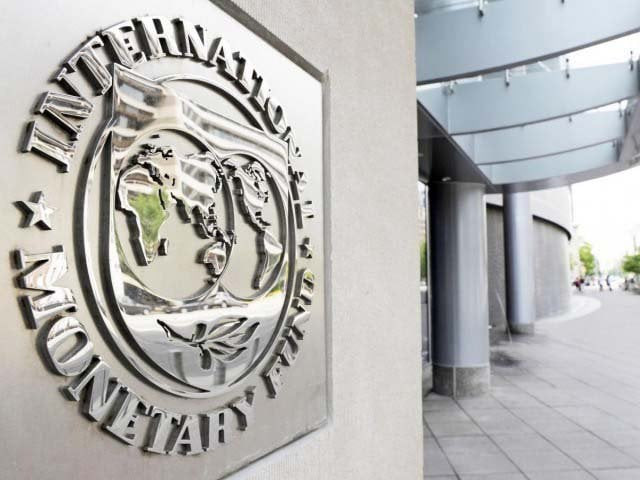IMF approves $452.5m second tranche of $6b package
Says Pakistan’s programme is on track and has started to bear fruit, but risks remain elevated

PHOTO: FILE
The IMF has once again supported the tight monetary policy stance besides emphasising upon the need to “timely and regularly” increase the electricity tariffs - the two issues that have invited a lot of criticism in Pakistan from independent policy experts and economists.
The Executive Board of the IMF met in Washington and approved the first review of the programme for July-September period of fiscal year 2019-20. In November, Pakistan and the IMF had reached a staff-level agreement on completion of the first review of the $6 billion programme.
If Pakistan's economy grows over 3.8%, it can trigger imbalances
“The completion of the review will allow authorities to draw SDR 328 million (about US$452.4 million), bringing total disbursements to SDR 1,044 million or about $1.44 billion,” according to a statement issued by the IMF after the board meeting. “Pakistan’s programme is on track and has started to bear fruit. However, risks remain elevated. Strong ownership and steadfast reform implementation are critical to entrench macroeconomic stability and support robust and balanced growth.”
The IMF once again emphasised upon faster progress to improve the AML/CFT framework and said that swift adoption of all the necessary measures was needed to exit the FATF’s list of jurisdictions with AML/CFT deficiencies.
The IMF statement came about a month before Joint Review Group of the Asia-Pacific Group will review progress on the FATF action plan implementation.
Pakistan met the conditions on net international reserves, reduction in net foreign currency swaps, reduction in primary deficit, zero borrowing from the central bank and cap on issuance of new sovereign guarantees.
IMF dismisses proposal of tax relief for builders
However, the targets have been achieved by paying a price in shape of low economic growth and increase in poverty and unemployment in the country. In order to meet the IMF targets on Net International Reserves and curbing the demand, the State Bank of Pakistan kept the interest rates artificially high at 13.25%.
But the IMF said, “The current monetary stance is appropriately tight and should only be eased once disinflation is firmly entrenched.”
Strengthening the State Bank of Pakistan’s autonomy and governance will support these efforts, it added.
The government and the SBP also believe that curbing the domestic demand was critical for bringing economic stability.
The Ministry of Finance did not release the budgetary allocations for development spending and the provinces also saved Rs202 billion cash surpluses in order to meet the IMF targets. All this choked the economic activities in the country.
“The flexible, market-determined exchange rate remains essential to cushion the economy against external shocks and rebuild reserve buffers,” according to the IMF handout.
Pakistan’s economic stabilization and reform program is on track. Strong ownership by the authorities and steadfast reform implementation are critical to entrench macroeconomic stability and support robust and balanced growth.
— IMF Pakistan (@imf_pakistan) December 20, 2019
The IMF said that Pakistani authorities had adopted a comprehensive plan to address the accumulation of arrears in the power sector. “Timely and regular adjustment of energy tariffs would bring the sector in line with cost recovery,” said the IMF.
Its full implementation is key to improving collection, reducing losses, and enhancing governance.
'PTI economic policies pushing Pakistan towards civil disorder'
The Power Division could not meet the circular debt reduction target for the first quarter and the government had to increase electricity prices.
The current account deficit shrank $4.9 billion or 73% to $1.8 billion during first five months of this fiscal year, according to the SBP. There is consensus among the independent economists that the demand-curb measures that the SBP and the Finance Ministry took were more than the requirements.
The IMF’s second tranche is expected to push the gross official foreign currency reserves over $11 billion. During the week ending December 13, 2019, the SBP reserves increased $1.7 billion to $10.9 billion. This increase is attributed to multilateral and other official inflows, including proceeds of $1.3 billion received from the Asian Development Bank.
The IMF hoped in November that inflation pressures were expected to recede soon, reflecting an appropriate monetary stance. It has urged Pakistan to maintain fiscal prudence, including carefully executing the fiscal year 2019-20 budget, to reduce fiscal vulnerabilities.
The IMF said that Pakistani authorities were committed to sustaining the progress on fiscal adjustment to place debt on a downward path. The planned reforms include strengthening tax revenue mobilisation, including the elimination of tax exemptions and loopholes, and prudent expenditure policies. Preparations for a comprehensive tax policy reform should start early to ensure timely implementation. Enhanced social safety nets would help alleviate social costs and build support for reforms.
It also said that efforts are ongoing to further improve the business environment, strengthen governance, and foster private sector investment. Reform of the state-owned enterprise sector will help put Pakistan’s public finances on a sustainable path and have positive spillovers by levelling the playing field and improving the provision of services, according to the handout.




1724319076-0/Untitled-design-(5)1724319076-0-208x130.webp)














COMMENTS
Comments are moderated and generally will be posted if they are on-topic and not abusive.
For more information, please see our Comments FAQ